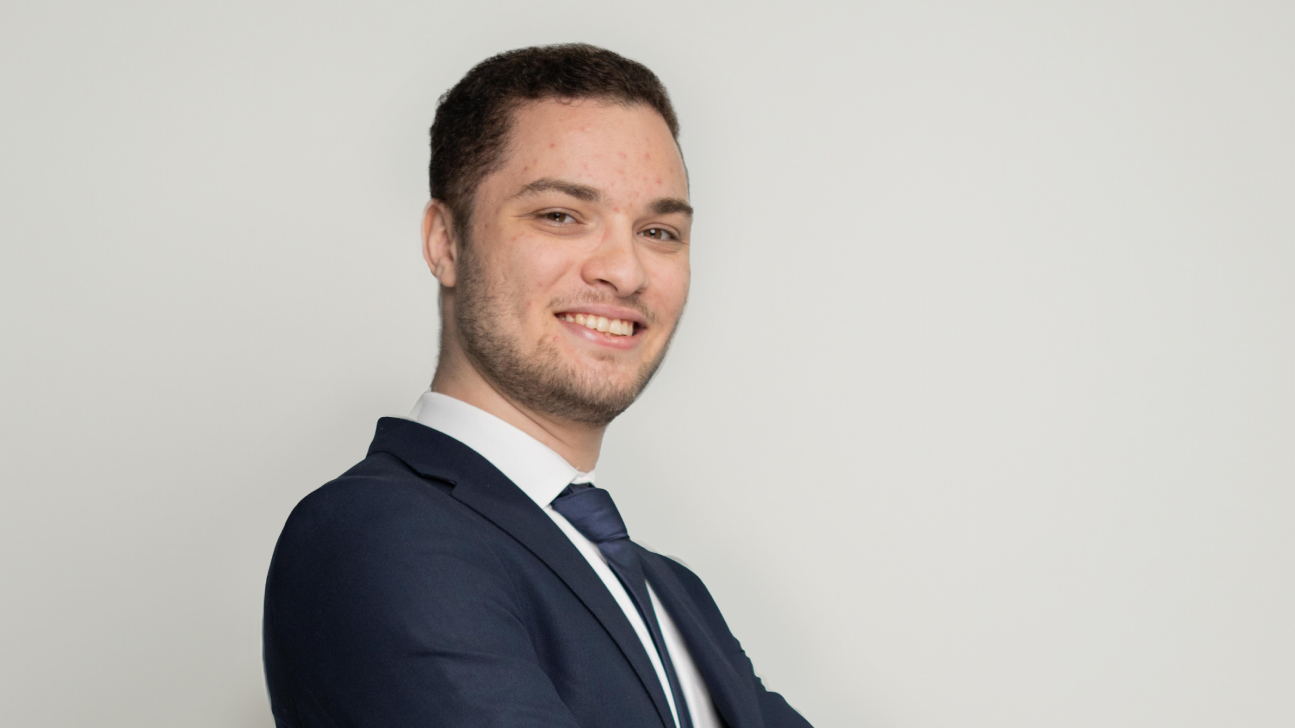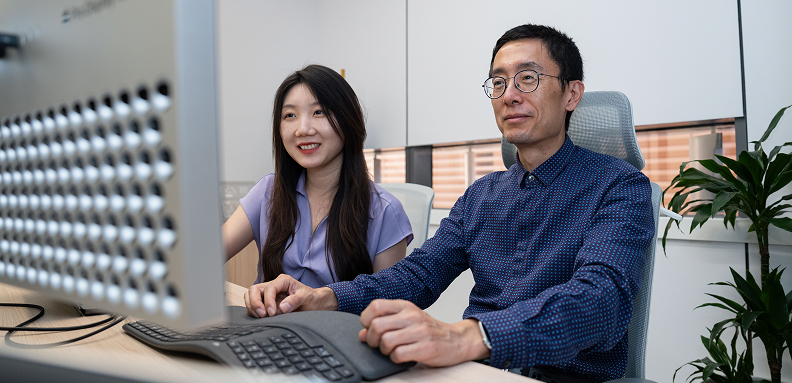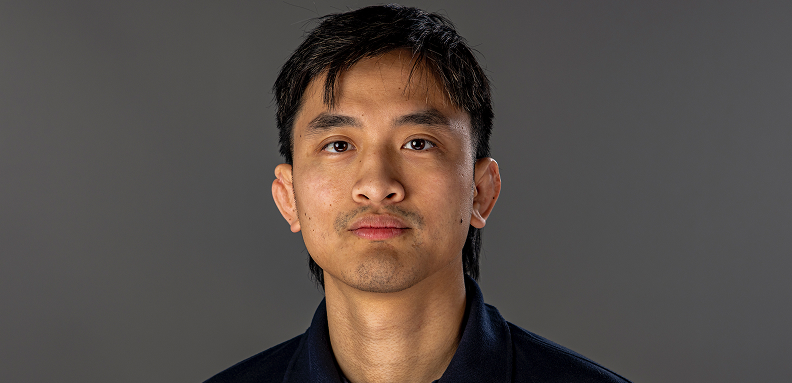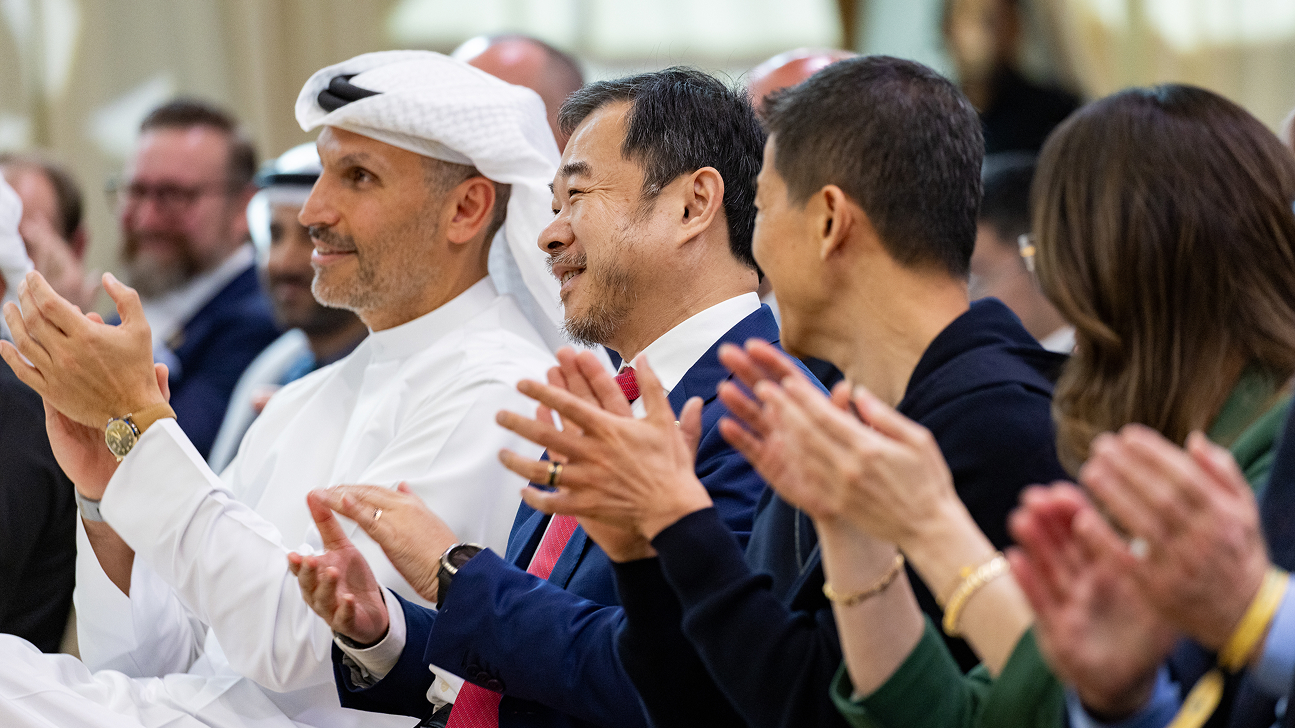Alumni Spotlight: Making AI accessible for all
Thursday, November 07, 2024

As an undergraduate student in his home country of Egypt, Ahmed Sharshar excelled at computer engineering but felt somewhat stymied in his efforts to develop impactful artificial intelligence.
“The hardware capabilities were not that high there, so we were quite limited in what we could do,” he says, explaining that this has been the driving force behind his efforts to develop smaller models that can make AI accessible to everybody.
“Models today are very good, but too large — like ChatGPT, for example,” he adds. “Back in Egypt we don’t have these hardware capabilities, as it’s too expensive for many of us. There are so many smart people in Egypt, but they cannot do good things that are publishable for good conferences because they don’t have the capabilities. It’s not fair to compare between people’s work based on the capabilities they have, and the financial support they’ve got.
“It’s not just about comparison, it’s also about application. If we want to apply things, we need a lot of money and energy, which some countries cannot support. So the big purpose for me is to make AI accessible for everyone via small models that don’t need extreme hardware capabilities.”
Having graduated in computer vision from the Mohamed bin Zayed University of Artificial Intelligence, Sharshar is now pursuing his Ph.D. – also at MBZUAI – and is determined to democratize AI.
“I still have not determined exactly what my Ph.D. thesis will be, but I want to build lightweight and energy-efficient models that can be accessible and usable for everybody, so that they can be used in different ways, whether that’s healthcare, the environment, education, or anywhere else.”
Creating for developing countries
Sharshar’s journey to accessible AI started during his bachelor’s degree with a ‘camera coach’ project designed to help people exercise safely and effectively at home using computer vision — a project he continued to develop at MBZUAI.
For his master’s thesis, Sharshar took things a step further by building an app that can assess a patient’s lung health without the need for the usual medical devices required to do so. The lightweight model uses deep learning and Spiking Neural Networks (SNNs) to analyze thermal and RGB video data, eliminating the discomfort associated with direct physical interaction and allowing for remote testing and diagnosis, while benefitting developing countries that don’t have the ability to support large models.
“I started small with the gym coach project, which can evaluate your performance without the need for high hardware capabilities,” he says. “Then at MBZUAI, my master’s thesis was for lung health analysis — assessing the performance of your lungs via mobile phone, either with a thermal camera or a mobile camera directly. We got really good results.”
Working with Professor Mohsen Guizani and Professor Mohammad Yaqub as his supervisors, Sharshar’s app invites you to upload a video of yourself forcibly breathing and then assesses how much air is in your lungs, whether there are any obstacles, and if you have any problems that need addressing. Using three metrics of Forced Vital Capacity (FVC), Forced Expiratory Volume in 1 second (FEV1), and Peak Expiratory Flow (PEF), Sharshar tested more than 2,000 samples from 60 participants.
For FVC and FEV1, he recorded 99.7% accuracy for the RGB model and 100% for the thermal model, while PEF saw accuracies of 97.14% for RGB and 96% for thermal. Exactly the kind of impact Sharshar was hoping for.
“I wanted to create models that could work for people in developing countries who don’t have access to GPUs and the like, so that they could benefit from the technology we have,” he said of his research shortly before the University’s 2024 Commencement ceremony.
Environmental appeal
Sharshar’s mission to develop small models for accessibility has another important angle: sustainability.
“Smaller models are more energy-efficient during training and inference, which is good for the environment,” he explains. “AI has a bad environmental aspect, and we need to eliminate that. There are natural resources and elements that we cannot reproduce, so we need to be cautious. It makes sense to sometimes sacrifice a little bit of accuracy in performance for better energy-efficiency.”
In this, Sharshar feels well supported by the University, which is actively exploring solutions to AI’s energy dilemma. “MBZUAI has a lot of professors working on energy-efficient models and thinking about the environmental aspect, as well as ethical aspects, like making things fair and good enough for everyone to use. It’s really nice to see the University thinking this way.”
And as he looks to the future, Sharshar takes inspiration from the wide-ranging expertise of MBZUAI’s faculty.
“When I look at the University’s professors and their work and ideas, I see so much diversity. You can think of literally anything related to AI and somebody here will be working on it. The University is covering a lot of things and developing them all at the same time. So it’s a great place to learn from these different people and expand my own understanding and research.
“That’s how I would like to continue — working in the research area, but focusing on being adaptive. The field of AI changes quickly, and the interests of people change as well. Now, there is a peak in LLMs, but maybe this peak will end in five or 10 years’ time. So if I only work on LLMs, I might be seen as useless in the future. So I want to broaden my vision and work on different things.
“If we reach a point where AI is good and accessible for everybody, I would then like to dive deeper into pure AI or realistic AI. It’s not here yet, but it will be a game-changer when it happens in the years ahead, so I would love to work on that. But for now I have a lot of work to do to make AI available to everybody who needs it. That’s what I’ll be focused on for a while.”
Related
Not just another deck: how MBZUAI’s okkslides is redefining executive communication
The MBZUAI startup is turning messy research and organizational context into decision-ready narratives with a human-in-the-loop AI.....
Read MoreAlumni Spotlight: driving AI transformation at a financial giant
MBZUAI alumnus Steven Hoang explains how he is using his master’s in machine learning to help shape.....
- student ,
- Alumni Spotlight ,
- finance ,
- alumni ,
- machine learning ,
MBZUAI marks five years of pioneering AI excellence with anniversary ceremony and weeklong celebrations
The celebrations were held under the theme “Pioneering Tomorrow: AI, Science and Humanity,” and featured events, lectures,.....
- celebration ,
- five year anniversary ,
- ceremony ,
- board of trustees ,
- faculty ,
- event ,
- campus ,
- students ,


